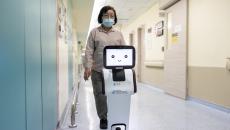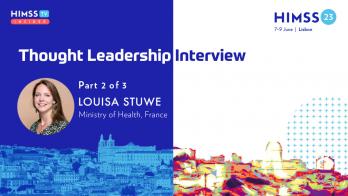News
Plaintiffs say the apparent theft of identity and other information announced this past week, which could impact as many as 11 million people, happened because the health system did not use "reasonable security procedures and practices."
Artificial intelligence has changed the threat landscape, enabling new cybersecurity risks for health systems: more sophisticated social engineering, automated vulnerability intelligence gathering, endpoint detection evasion and more.
In a study published in Nature, Google revealed that its generative AI technology answered medically related questions with 92.6% accuracy.
The organisations have also set up a joint AI research lab for population health and digital health.
The smart hospital is trying innovative approaches to enhance patient and visitor experience while increasing staff efficiency and productivity.
CCA prioritizes virtual care because access to technology is a social factor that impacts health – and it enhances care coordination by engaging members where they are.
The electronic health record vendor was accused by the DOJ of "misrepresenting the capabilities of certain versions of its EHR software" and providing kickbacks to customers to drive new sales.
Sponsored
How to tackle staff shortages and manage increasingly complex diagnostics.
The CEO of CRISP discusses how health information exchanges, regional health networks and others are collaborating to build out the interoperability ecosystem and enable more effective sharing of critical clinical and public health data.
University of Texas researchers found that symptoms of certain diseases are more difficult for patients to communicate and doctors to observe over video. Other limitations mean little cost-reduction benefit from telehealth when compared to in-person care.













3a81.jpg)












